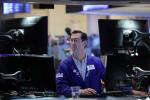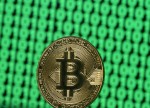
- All Instrument Types
- Indices
- Equities
- ETFs
- Funds
- Commodities
- Currencies
- Crypto
- Bonds
- Certificates
Please try another search

It’s 'Unanticipated' Inflation That's The Real Bond Market Killer

When studying Bond Management, and Money and Banking and the like in business school and the CFA program, the one thing that always stuck out to me in terms of academic discussions of inflation and growth is that it’s “unanticipated” or “unexpected” inflation that is the true bond market killer.
As a kid in the 1970’s, starting high school in 1974 I remember the formation of OPEC and the Arab Oil Embargo well, and how waking up one day and finding all the US petroleum assets suddenly nationalized, and the cost of a gallon of gas rising from $0.25–$0.30 to $3 per barrel and what that did to inflation and the bond markets in the 1970s.
That was unanticipated or unexpected inflation.
Today, with the constant chattering of inflationistas, and the non-stop worrying over all things commodity-inflated, it’s hard to make the case that any of this inflation will be “unexpected.”
Think about it: in May or June of ’21, do you think a CPI or PPI that is above or below expectations will cause a bigger bond market reaction ?
The 10-year Treasury yield could trade up to 2% in the next few months or quarters and that alone wouldn’t be too alarming and—in my opinion—wouldn’t be anything that the US equity market couldn’t adjust to over time.
The fact of the matter is the whole US bond market(s), including Treasuries, mortgages, corporate high-grade and high-yield, asset-backed, and CMBS, there is very little “real" (i.e. after-inflation) return available today. Clients are in BlackRock’s Strategic Income (BSIIX), JP Morgan’s Income Fund (JGIAX), and some high-yield ETFs as well as a growing allocation to municipal bonds, even in tax-deferred accounts like IRAs and SEPs.
The looming tax hikes as well as the bailout package will bring in credit support to munis and then demand for tax-exempt income if the Dems try and pass what they said they wanted to pass in the Presidential campaign.
Since I graduated from college in 1982, the one consistent theme that has been prevalent from the Fed, from the money markets, from the financial media, is that “we need to worry about inflation” and the great irony has been that in the last 25–30 years, we really haven’t needed to worry about inflation at all.
The heightened anxiety over inflation seems to have removed all “unanticipated or unexpected” aspects to it entirely.
Related Articles

When it comes to the economy, we’re in a bit of a weird spot: The data tells us that, despite inflation fears, interest rates are likely to fall in the year ahead. Falling rates...

Telegram Group Inc. is a globally recognized messaging service company, offering a cloud-based mobile and desktop messaging application. Known for its strong focus on security,...

Many investors regard passively managed index mutual funds or ETFs as favorable options for stock investing. However, they may also find that actively managed funds offer...
Are you sure you want to block %USER_NAME%?
By doing so, you and %USER_NAME% will not be able to see any of each other's Investing.com's posts.
%USER_NAME% was successfully added to your Block List
Since you’ve just unblocked this person, you must wait 48 hours before renewing the block.
I feel that this comment is:
Thank You!
Your report has been sent to our moderators for review




Add a Comment
We encourage you to use comments to engage with other users, share your perspective and ask questions of authors and each other. However, in order to maintain the high level of discourse we’ve all come to value and expect, please keep the following criteria in mind:
Enrich the conversation, don’t trash it.
Stay focused and on track. Only post material that’s relevant to the topic being discussed.
Be respectful. Even negative opinions can be framed positively and diplomatically. Avoid profanity, slander or personal attacks directed at an author or another user. Racism, sexism and other forms of discrimination will not be tolerated.
Perpetrators of spam or abuse will be deleted from the site and prohibited from future registration at Investing.com’s discretion.